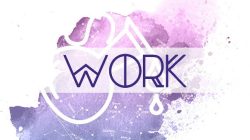Here’s what you should be aware of:
- Today’s younger job seekers are far more inclined than earlier generations to anticipate that companies should show how they implement their core values prior to these candidates committing to joining an organization.
Frustrated with Gen Z employees at work? You’re not the only one. According to a recent study involving 1,000 U.S. managers, over half reported feeling frustrated, and nearly an equal number mentioned experiencing stress when dealing with this latest generation joining the professional world.
Almost one-third of respondents indicated that they would prefer not to hire a Generation Z candidate, and about 18 percent considered quitting their jobs due to the difficulties associated with overseeing employees from this generation. These issues seem mutual; studies show that roughly 65 percent of Gen Z members may depart their positions within the initial year, whereas around half of them express feeling disconnected from their work. What accounts for this gap?
Firstly, this generation has grown up in an environment vastly distinct from previous ones—matured amidst technological advancements, immediate accessibility, and worldwide connections. They entered education systems or joined the workforce during a global pandemic that compelled workers globally to reassess priorities. What distinctions does Generation Z bring to the professional arena—and what steps should human resources take to align with these changes? According to Adams and other specialists, there are five key aspects to consider.
Maintaining work-life balance is essential nowadays.
According to Conway, the change in society’s approach to mental health and well-being has significantly impacted Generation Z. This cohort is better at identifying and comprehending their emotions—and this awareness shapes how they engage with their jobs. As Conway points out, members of Gen Z recognize when they feel stressed—they do not dismiss these feelings.
“It’s simply a facet of their existence.” The source of this stress might vary somewhat compared to previous generations. According to Alight, regardless of age group, stress typically stems from job-related issues and financial concerns; additionally, parents who are older workers frequently cite child-rearing as another significant source. However, Generation Z is notably more prone to feeling stressed over broader matters such as the global economic situation and environmental issues when contrasted with other generational cohorts.
The “constantly connected” attitude prevalent among this generation, exacerbated by their familiarity with cutting-edge tech and social media from an early age, is making members of Generation Z feel overwhelmed, according to Conway. Therefore, employers must make sure that their wellness programs address the various stresses affecting their employees nowadays. While step challenges might fit into certain wellness initiatives, contemporary approaches should focus on personalized and comprehensive strategies. Employers could significantly impact employee well-being through such inclusive methods.
At Arlo, Berti says, the organisation has sought to avoid “pigeonholing employees with just one specific approach to wellbeing.” For instance, among its offerings is a wellbeing stipend that enables employees to define for themselves how they want to support wellbeing.
Well-being – customize for effectiveness
Conway notes that the cultural change in tackling mental health and well-being has significantly impacted Generation Z. This cohort is better at identifying and comprehending their emotions, which affects how they engage with their professional responsibilities.
“Generation Z recognizes that they are experiencing stress; it’s not an emotion they try to suppress,” Conway states. “It simply forms part of their everyday existence.” The source of this stress might vary somewhat compared to previous generations. As an example, Alight discovered that, regardless of age group, stress predominantly stems from employment and financial concerns, whereas older individuals also grapple with parenting pressures.
Generation Z is notably more prone to stress over issues such as the worldwide economy and environmental concerns compared to previous generations. According to Conway, this heightened sense of worry among members of Generation Z can be attributed to their constant connectivity and exposure to advanced technologies and social media from an early age, which often makes them acutely aware of global challenges and gives them a feeling of carrying the world’s burdens.
Considering this, employers should make sure their wellness programs address the various sources of stress affecting employees nowadays. While step challenges might fit into certain wellness initiatives, contemporary wellness strategies must be tailored and comprehensive: “A more inclusive strategy allows employers to exert significant positive impact.”
At Arlo, according to Berti, the organization has aimed to steer clear of “confining staff members to a single predefined method for well-being.” They offer various options such as a wellness allowance, which allows employees to determine their own path towards enhancing their personal well-being.
Need for guidance
When it comes to wellness programs, Generation Z might be more aware of the importance of appropriate exercise and nutrition compared to earlier generations—but they could also be accustomed to their parents scheduling medical appointments for them up until recently, as Conway points out.
Conway proposes that HR can assist younger employees in gaining greater confidence in making health and healthcare choices by providing them with access to second-opinion programs, expert guidance, and healthcare navigation tools.
Merely providing support and resources related to well-being may not be sufficient to attract Generation Z participants; she notes that these programs also need active promotion.
Alight discovered that younger employees tend to refrain from utilizing available resources when these seem irrelevant to them or when they fail to grasp their significance. “It’s essential to assist younger workers in comprehending how these resources can benefit them personally,” she explains.
Tech-fueled experiences
One of the greatest differentiators for Gen Z is likely their technical expertise – or, at the least, experience. That means employers need to ensure the entire employee lifecycle is supported by technology: mobile hiring and onboarding, benefits self-service, access to earned wages, Berti says.
Conway points out that with Generation Z’s heavy dependence on digital platforms, it is crucial for companies to ensure their programs, resources, and communications are accessible online for this demographic.
“You must consider how you present your content and programs; people are more inclined to utilize them when they’re available online as they perceive these resources to be more relevant,” she explains.
Provided by Syndigate Media Inc. (
Syndigate.info
).






